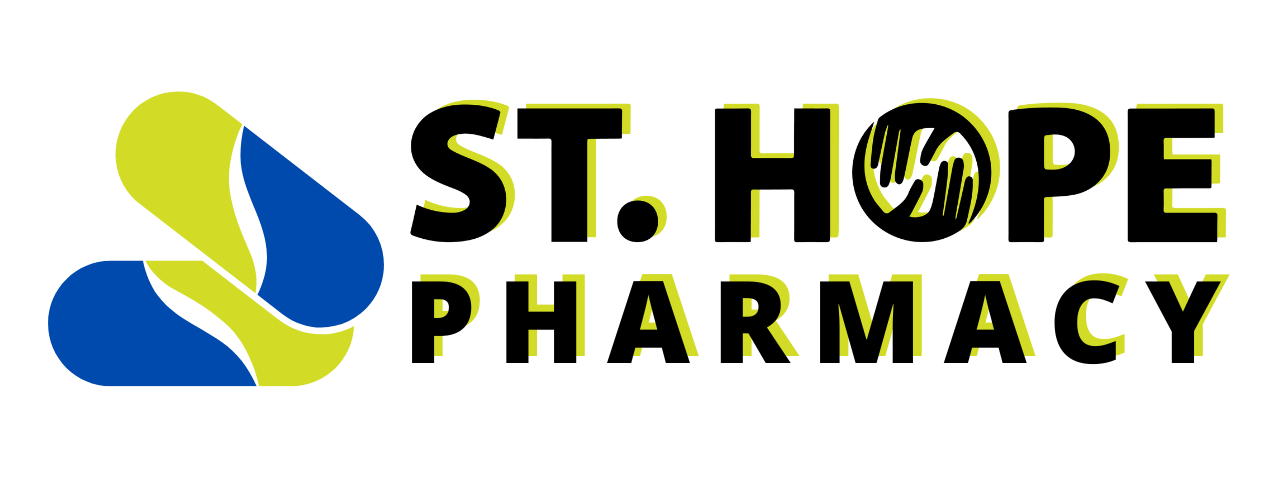Empowering Communities: The Vital Role of Pharmacists in Public Health
In our modern society, the field of healthcare is continually evolving, with a growing emphasis on preventive measures and community-based interventions. Among the many professionals contributing significantly to public health are community pharmacists.
While pharmacists are typically known for dispensing medications, these healthcare professionals actually take on many other responsibilities and serve as frontline advocates for wellness, education and healthcare accessibility for the public.
Community Pharmacists and Their Role in Public Health
The role pharmacies play in local communities varies. While some are primarily known for dispensing medications and doubling as convenience stores, others take a more active, community-focused approach. For example, St. Hope Healthcare’s pharmacies participate in the 340B program, which ensures eligible low-income and uninsured patients have easy access to discounted drugs in the Houston area. This makes pharmacies like ours a convenient and affordable point of contact for all community members seeking healthcare guidance.
- Medication Management: Pharmacists are experts in medication therapy. They ensure patients understand their prescriptions, including proper dosage, potential side effects and interactions with other medications. This vital education empowers individuals to take control of their health and adhere to prescribed treatment plans effectively.
- Immunizations: Pharmacists play a pivotal role in administering vaccinations, a significant part of public health. The accessibility of community pharmacies makes them invaluable in promoting immunization campaigns, particularly in underserved communities where access to traditional healthcare facilities may be limited.
- Health Screenings: Many pharmacies offer health screenings for conditions such as diabetes, hypertension and cholesterol levels. These screenings help identify health issues early, allowing for timely interventions and preventing the progression of chronic diseases.
- Smoking Cessation: Pharmacists provide counseling and support for individuals looking to quit smoking, offering strategies, resources and nicotine replacement therapies. By actively engaging in smoking cessation programs, pharmacists contribute to reducing the prevalence of tobacco-related illnesses.
- Health Education: Pharmacists are trusted sources of information on various health topics, ranging from medication management to disease prevention. They conduct outreach programs, seminars and one-on-one consultations to empower individuals with knowledge and promote healthy lifestyle choices.
Addressing Healthcare Disparities
Despite advancements in healthcare, significant disparities that disproportionately affect marginalized communities persist. According to the CDC, 25.3 million Americans were without health insurance during the first three months of 2023.
Access to quality healthcare services, socioeconomic factors and systemic inequalities contribute to these disparities, impacting health outcomes and worsening existing health inequities.
- Access to Care: Many underserved communities lack access to primary care physicians and traditional healthcare facilities. Community pharmacists bridge this gap by providing accessible and affordable healthcare services, particularly in rural areas and urban neighborhoods with limited resources.
- Health Literacy: Limited health literacy exacerbates disparities, as individuals struggle to understand healthcare information and navigate complex systems. Pharmacists play a crucial role in promoting health literacy by providing clear, concise information and empowering patients to make informed decisions about their health.
- Cultural Competence: Cultural differences influence healthcare beliefs, practices and preferences. Pharmacists who demonstrate cultural competence establish trust and rapport with diverse patient populations, ensuring that healthcare services are tailored to individual needs and preferences.
- Affordability:
The high cost of medications and healthcare services poses a significant barrier, particularly for uninsured and underinsured individuals. As a 340B program participant, St. Hope Healthcare pharmacies are proud to provide affordable access to medications, offering generic alternatives, assistance programs and medication therapy management services to minimize financial burdens on patients
- Collaborative Care: Addressing healthcare disparities requires a multidisciplinary approach involving collaboration between healthcare providers, community organizations and policymakers. Pharmacists actively engage in collaborative care initiatives, participating in interdisciplinary teams to address the holistic needs of patients and communities.
Get Affordable Medications and Community-Centered Health Guidance at St. Hope Pharmacy in Houston, TX
Ready to take charge of your health and well-being? Visit St. Hope Pharmacy today and discover a personalized approach to healthcare that prioritizes your needs. Our dedicated pharmacists are committed to providing compassionate care, expert guidance and accessible services to every member of our community.
Whether you're seeking medication management, immunizations, health screenings or smoking cessation support, we're here to help. Trust St. Hope Pharmacy to be your partner on your journey to better health.
Stop by a St. Hope Pharmacy location today or contact us here on our website to request more information.



